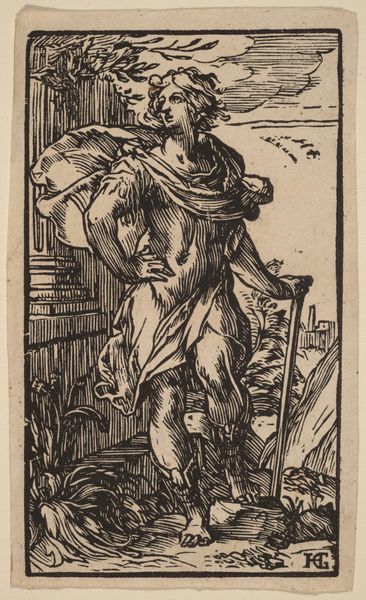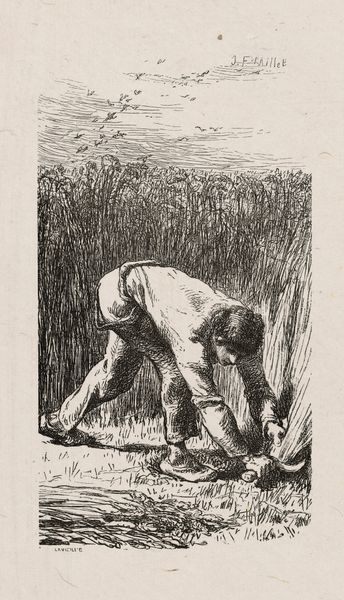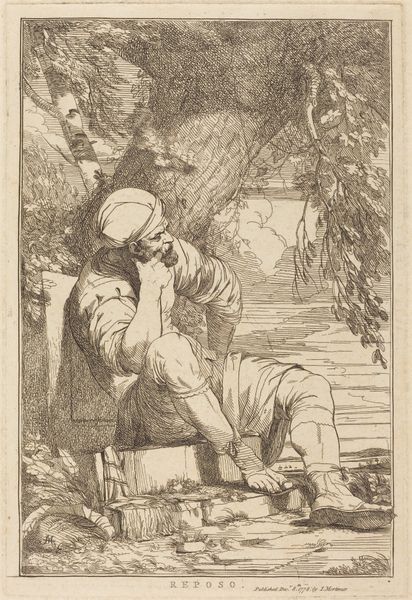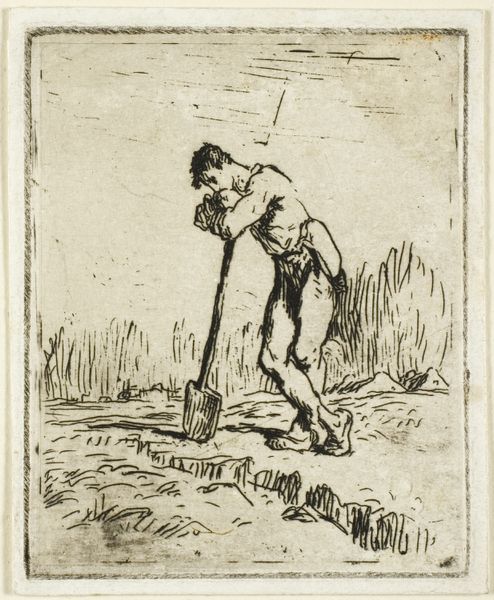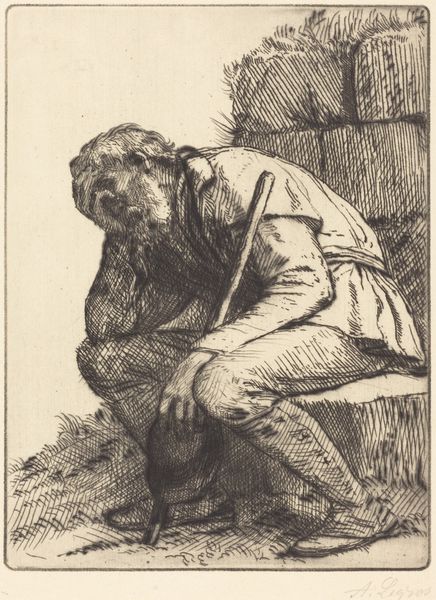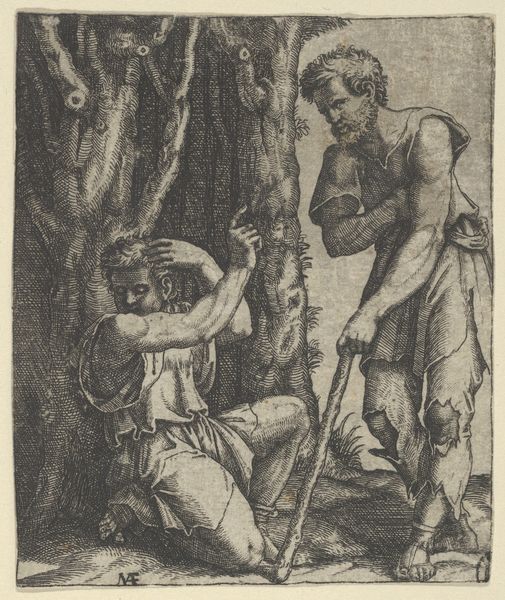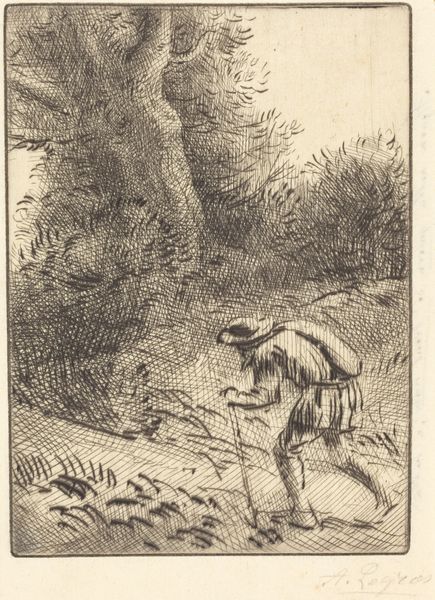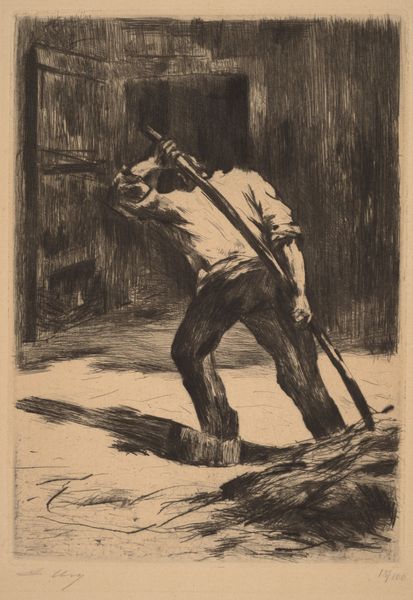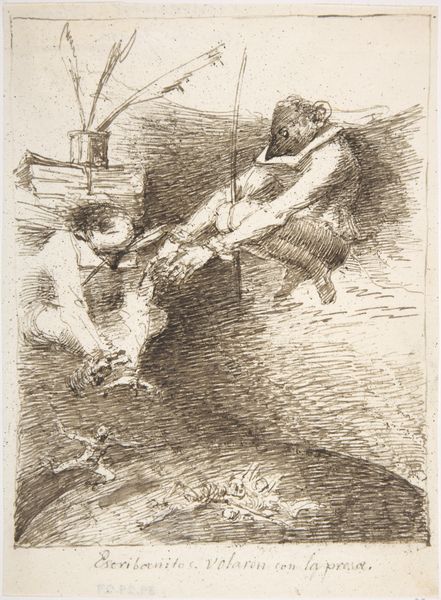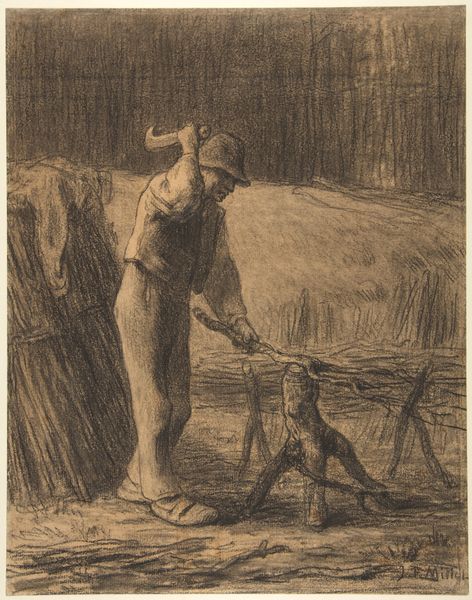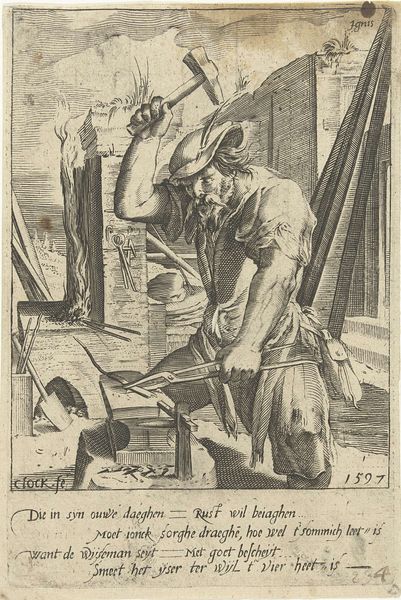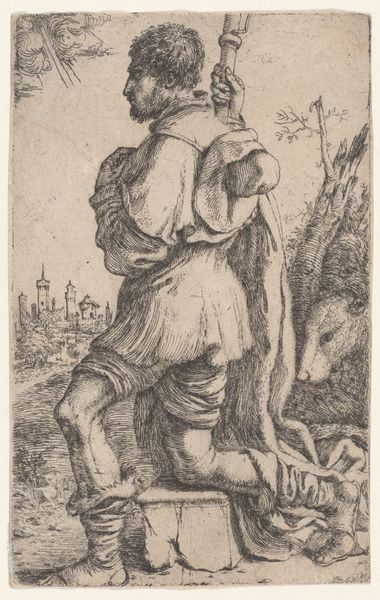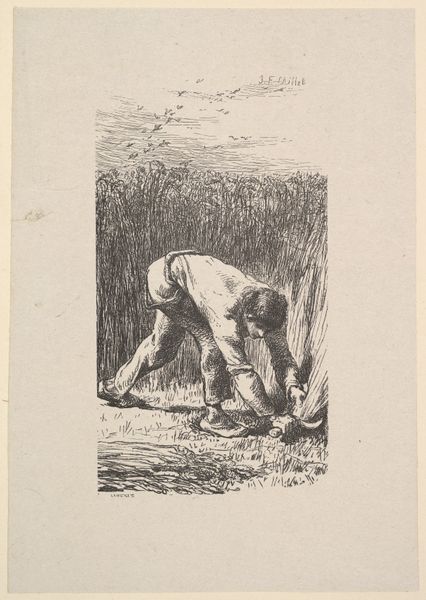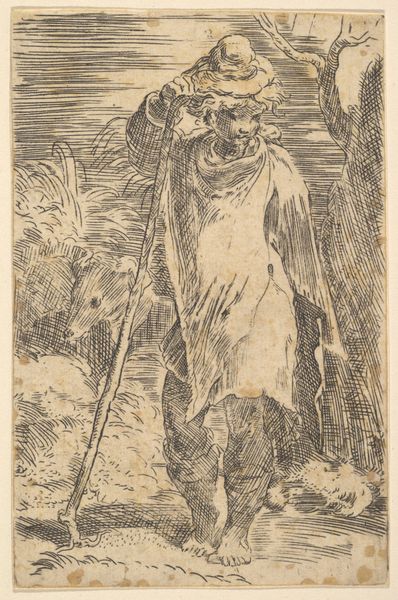
drawing, print, etching
#
drawing
# print
#
impressionism
#
etching
#
landscape
#
figuration
#
genre-painting
#
realism
Copyright: National Gallery of Art: CC0 1.0
Curator: Let's discuss Alphonse Legros’s print, "Fagot-cutter," etched with a delicate yet powerful hand. What strikes you immediately? Editor: There's a palpable sense of weight and labor. The density of the lines almost feels oppressive, conveying the arduousness of the worker's task. Curator: Indeed, the figure, positioned almost centrally, is burdened by his toil. He embodies the enduring connection between humanity and the land, a trope echoed throughout art history. Look at how the artist used genre-painting themes within an Impressionist style to focus our attention. What cultural memory does it invoke for you? Editor: I think the subject gives primacy to manual labor, which had clear class connotations in the 19th century and perhaps even now, when there is a sense of "forgotten people" linked to working class identity in society, the media, and in politics. Curator: I find the composition striking in its simplicity; the large looming tree echoes his hunched figure and hints to our mortality through the cut logs next to his laboring body. Editor: Absolutely. There's a dialectic tension here between the ephemeral quality of line and the solid presence of figure and landscape. Curator: The figure appears again and again in the Realism of the period: the worker shown truthfully and plainly, with dignity and no patronizing attitude. His face is obscured beneath a wide brim hat suggesting a certain ambiguity: his humanity takes precedence over his individual character. Editor: Do you believe the absence of any narrative beyond the immediate task limits our reading? Or does it, perhaps, heighten the universality of his actions, turning it into more of a social allegory? Curator: Legros elevates a moment of peasant toil to something lasting and profound through the graphic skill and simple humanity of the scene. What is your final thought about the print? Editor: In the end, I am struck by its powerful use of graphic tools—how stark contrasts build a complex visual representation. The impression stays.
Comments
No comments
Be the first to comment and join the conversation on the ultimate creative platform.
